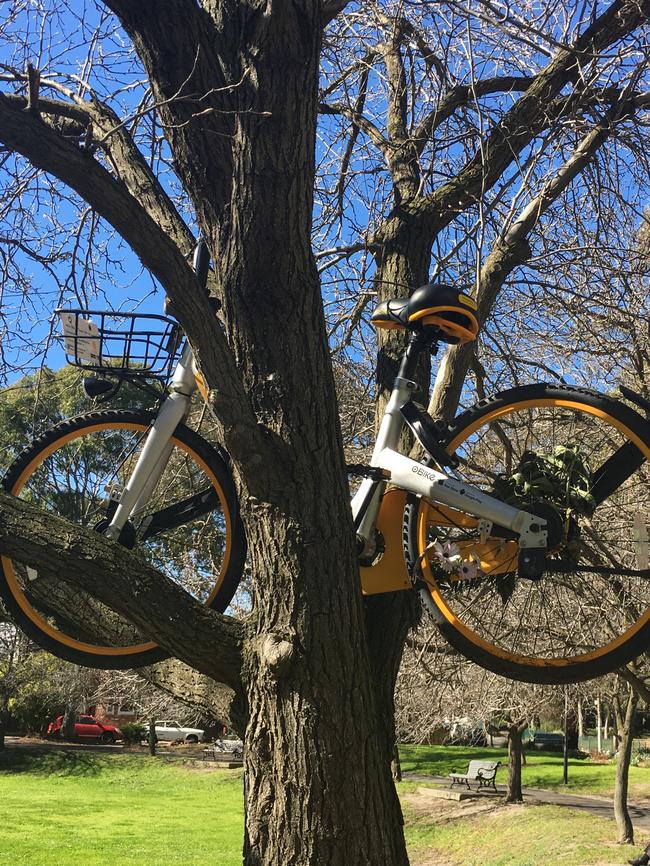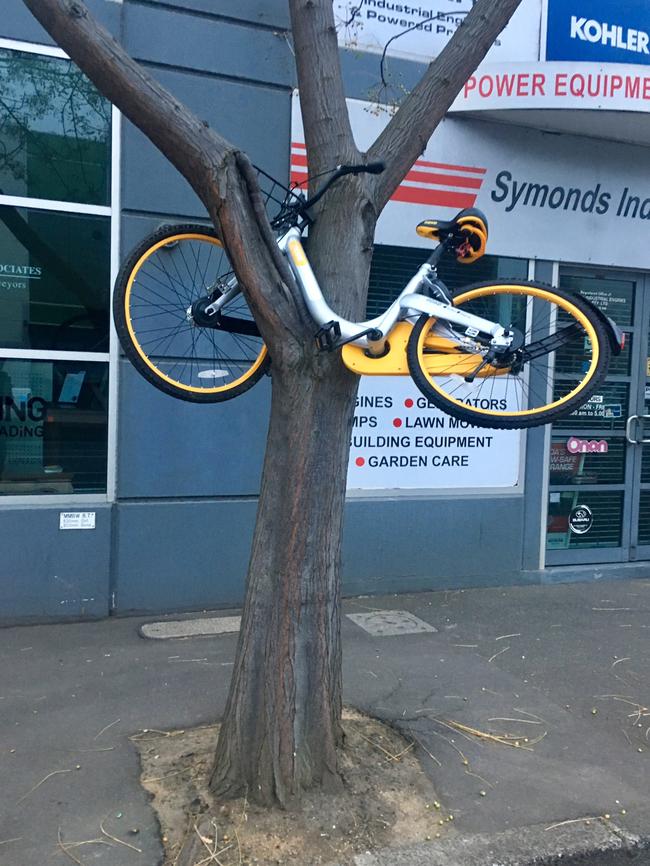
Share bikes. You either love them or hate them, but that’s not the point of this article.
The point of this article is to marvel at how superbly the share bike illustrates the age-old debate over capitalism v socialism.
What drives human beings? Is it predominantly self-interest? Or is it the common good?
Well, let’s see: if you personally own a whizzbang bike, or a snazzy BMW, or a sweet beach cruiser, you’ll take care of it, and why wouldn’t you?
You had to save up to buy it.
You felt a burst of pride in your chest when you picked it up, and that feeling is important, because it drives a lot of behaviour. You want to feel that burst of happiness again in your life.
You chose the bike carefully to meet your needs: road transports, or weekend hijinks. Now it’s yours, and you’re fond of it. You dream about where you’re going to ride it, and if you’re a certain kind of fellow, you may also dream about how lovely your hindquarters are going to look after hours in the saddle.
When you get off your bike, you’re going to park it somewhere secure. That’s why they made bike locks, because you care what happens to your ride.
You’re invested.
Your own interests — your money, your desires, your pride — are tied up in the purchase of that bike ... and as every economist knows, you can count on self-interest. It’s the force behind a thriving economy.

I don’t have to quote this. You’re all going to know it. But let’s quote it anyway. In 1776, Adam Smith said: “It is not from the benevolence of the of the butcher, the brewer, or the baker that we expect our dinner, but from their regard for their own interest.”
Smith was arguing that human beings are programmed to take care of themselves, and their families.
They will work to get what they need — food and shelter — and they will work even harder to get the things they want: sweet wheels, for example.
That drive in turn powers the economy.
But of course, we also take care of the things we value. We polish our cars. We keep our valuables safe. We lock up our expensive carbon-fibre bikes.
Now enter the share bike.

It’s not yours, so what do you care about what happens to it? You can borrow one and you can then leave it anywhere. The local council says so. It might get stolen or wrecked or thrown in a river, but so what?
You have no stake.
If you’re a decent citizen, you might go out of your way to find a nice tree to lean it against, but what happens to it from there isn’t your problem.
You don’t have to store it out of the rain, so it doesn’t get rusty. You don’t have to make sure the tyres are pumped and the chain is greased.
You are not going to shove your own bike up a tree for Facebook likes and nor are you going to let your mates ride your bike down to the Yarra and dump it in the river, because you love your bike.
You are going to take your bike home, because you want to use it again. That’s why you bought it. For the convenience and joy of having it.
But if it’s not yours?
You just don’t care as much. And some people don’t care at all. And so we have share bikes stuck up trees and lamp posts and littering the streets.
Self-interest also explains why so many of the new share bikes can be found at popular destinations — the beach, the park, the river — because it’s jolly to ride down there, and not your problem how the bike gets back.

You don’t have to dock them anywhere in particular, and so people are dumping them literally anywhere.
It explains why so many share bikes get stolen. It’s convenient for you to have a bike at home, and so you may well ride a share bike home and dock it behind your own front door.
Now enter the common good.
No free market operates without some regulation — greed is not always good — because even the most muscular of capitalist societies recognises the concept of the common good.
We all breathe the same air. Therefore, we’re all subject to restrictions on, say, the burning of wood fires, to keep air quality high.
Do share bikes fall into the same category?
Are they like, say, public buses? Because it’s good to get people out and about and off their devices, and it’s good to get them exercising.
The promotion of bikes over cars may assist in a tiny, tiny way with climate change.
But are we as a community all prepared to pay for trucks to roam the streets, removing rogue bikes from fire escapes and lamp posts, where they are a public nuisance and a fire hazard?
Who is going to pay for repairs? Who is going to pay for the docking stations, which must surely come?
You and me, for the benefit of some big share-bike corporation somewhere? Why would we do that? Why not just encourage people to buy bikes of their own, and to take care of them by themselves?
Because, as we’ve seen, if you don’t own it, you don’t really care about it. Or, as Bob Dylan once said: if you ain’t got nothing, you got nothing to lose.







To join the conversation, please log in. Don't have an account? Register
Join the conversation, you are commenting as Logout